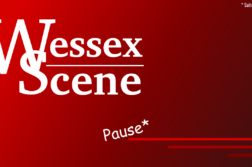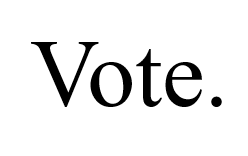Disclaimer: The views expressed within this article are entirely the author’s own and are not attributable to Wessex Scene as a whole.
Popular imagination of the House of Lords fits a general mould, usually encompassing the words ‘antiquated’, ‘undemocratic’, and ‘corrupt’. It is unsurprising that the Lords gains this association when most of its day-to-day operations are so innocuous that they rarely make the news. Media appearances of the Lords are usually saved for the Prime Minister’s peerage nominations, typically a list of a number of party donors, cronies, and other party-political friends. Boris Johnson’s uninspiring first round of nominees is right on form with this trend – 36 new questionable peers.
I, like so many others, was struck by what seemed like blatant cronyism and nepotism. For a start: Evegeny Lebedev, Russian oligarch, owner of the Evening Standard. I suppose it is always good to have a media baron as a legislator. This is akin to nominating Rupert Murdoch for a peerage, which, incidentally, Margaret Thatcher attempted to do in 1990. Other nominees, like Michael Spencer, who has donated £5m to the Conservative Party, helped to round off my initial reaction: ‘this has to be a joke?’. Though Boris Johnson may aspire to be a professional comedian, he is certainly not joking and, if feeling honest, he may candidly justify his choice: ‘All Prime Minister’s nominate their friends!’
He would have a point. The 2006 Cash for Peerages scandal revealed the vast sums of money that would-be Lords had donated to the main political parties. Large donors circumvented the law on payments for lordships (Honours Act 1925) by disguising donations as loans that the loaner later forgave. Though loans, since 2010, must be declared, peerages remain a tradeable asset. A 2015 study into the ‘market for peerages’ found one’s chances of being made a peer was greater if they were a large donor – the average price paid being £367,764.39 (though this is slightly skewed as, rather shockingly, ’28 [Lords] accounted for 95% of all party-political donations’ in the period 2004-2014. That is 95% of the £34,569,781.34 that peers donated to the main parties in this timeframe). Peerages are thus used in the party platform as patronage to leverage significant payments from wealthy businessmen, corporate types, and so on (as party members tend to make only small contributions). This makes the United Kingdom home of the world’s most expensive name change and, aside from all donations having to be declared, no meaningful reform has occurred.
The ability to appoint Lords is an incredible political power as a revenue raising device, making the whole sorry process worse by the fact that peerage nominations are at the Prime Minister’s full discretion, with no apparatus to obstruct spurious candidacies. The watchdog for appointments – the House of Lords Appointments Committee (HOLAC) – can merely recommend non-party Peers and urge the Prime Minister against potential candidates, but cannot obstruct the Prime Minister’s choices; it is purely advisory.
The Prime Minister is not limited in his number of choices either; there is no limit as to how many individuals may be nominated, nor is there a limit on the size of the house itself. As Meg Russell has documented, the size of the second chamber has been increasing unchecked, with each Prime Minister looking to out-do the last by balancing the parties in the house. Under Labour, from 2000-2010, the House of Lords grew by 69 members. Between 2010-2015, it grew by 112 under the Conservatives. A restless re-jigging for political power has created a grossly inflated house (773 members and rising), threatening to become a bloated body useless under its own weight.
It is apparent, then, that the practice for Lords appointments has metastasised into a foul revenue-raising scheme and patronage for political allegiance, a process in which Boris Johnson is merely the latest to profit from. This rotten outcome, though politically convenient for the party in power, serves only to undermine the Lords as a legislative body.
The current bent practice of Lords nominations translates also into lost trust in the workings of the state, as well as a loss in the chance for a broad spectrum of representation in the Lords. The success of commentators who deride the Lords for ‘interference’ in projects that they support, despite reviews of legislation being exactly the performative function of the body, is born from dissatisfaction with the make-up of the body. And though this kind of outrage is frequently fabricated by politicians and journalists, as nothing sells an idea more (and thus papers!) than provoking a sense of betrayal, this sentiment felt by the people – that ‘they do not represent us‘ – is only exacerbated by the terrible nominations system.
Usage of the Lords as a rhetorical punching bag to further one’s career is careless because it plays on the genuine concern that the Lords is unrepresentative. What’s worse is that party politicians toting such rhetoric may be honoured. Complaining fiercely that the Lords is undemocratic, only to later, gracious in their hypocrisy, accept their peerage.
Calls for reform of the Lords is an old hat, but it is necessary in order to ensure confidence in the performance of the second chamber in tandem with the Commons. Since 1999, the House of Lords has been more willing to criticise and push back against government legislation – it ought to be given the legitimacy to do this. It is inevitable that the second chamber will become more directly democratic, for instance, and there are many ways for this to be realised. The financial incentive behind peerage nominations should be quashed (an, admittedly, complex task: money in politics is worryingly extensive). A short-term fix would be to remove nominations from being at the Prime Minister’s full discretion, and embolden the HOLAC. In my view, confidence in the Lords can only be achieved when it is not used as a tool for expedience, so the Lords should be more independent from executive overreach.
Sadly, it would take an inspired Commons and Lords to fulfil such reform. Any government, particularly today’s, would not be so willing to part with powers it has inherited.



